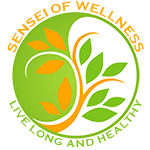Does Protein Make You Fat?
Today we'll study the second macro-nutrient, Protein. In a previous article, we discovered that the macro-nutrient fat, doesn’t make you fat. We’ve learned in previous lessons that carbs absolutely make you fat and we will get into that next week when we focus on carbohydrates, but we’ve been told to eat protein not carbs if you want to lose weight. Is that true, or does protein also make you fat?
Our overall premise is that weight gain or obesity comes from too much insulin. So if that is the case, then we need to know if protein causes an insulin release. The answer is YES, protein, like carbs, do cause an insulin release, just not as much. So technically, yes, protein can make you fat. This is why we always recommend to eat protein (it is essential) but in moderate amounts. Fats don’t cause any real insulin release, protein causes some insulin release, and carbs cause a large amount of insulin release. That is one of the reasons why we promote a low-carb, moderate protein, high fat diet!
Do we need protein?
Yes, protein is essential for life and has many benefits, especially animal protein.
- Proteins are the main building blocks of our bodies.
- Used to maintain and make muscles, tendons, organs, and skin.
- Contains essential amino acids our bodies cannot produce
- Contains essential fats like Omega 3’s and Omega 6’s
- Only animal proteins contain vitamin B12 which is essential to form our DNA, create healthy blood cells, and keep our nerve in tip top shape!
- Required to maintain and promote muscle
Protein Contains Protectants to Weight Gain!
Luckily for us, protein has built in protectants that allows us to eat them (we have to because it is essential for life) without the fear of gaining too much weight.
- Although it causes insulin release, luckily not as much as carbs so the weight gain isn’t so drastic.
- The fat in protein has a satiety effect, so we won’t eat as much as we would or could eat carbs. Think of the last time you got stuffed at dinner. Could you fit in another steak? No! But I bet you had room for that piece of cake!
- Protein boosts our metabolism.
Where Do We Get Protein?
The truth is, almost all foods have a certain amount of protein. The biggest sources of protein come from:
- Beef
- Pork
- Poultry
- Seafood
- Dairy (full fat, which also helps to protect you)
- and even some Veggies like Legumes (Beans), Soy, Nuts, and Seeds (especially Quinoa)
How much Protein do we need?
We need a decent amount of protein in our diets. But don’t confuse grams or say grams of beef to grams of protein, they are not the same. 8oz of beef (226 grams) has 61 grams of protein. In general, men need between 60 and 90 grams of protein, women 50 to 75 grams.
Can a vegetarian/vegan get enough healthy protein?
The short answer? NO!
It would be difficult for a vegetarian to get enough protein in a day, especially animal protein which has essential things that plant protein can’t give you. But at least vegetarians will eat animal byproducts like eggs and dairy. But you’d have to eat a lot of eggs to build and maintain things like muscle.
Vegans are even tougher to get the healthy protein needed as they won’t eat any animal products including eggs and dairy. Vegans would have to eat 3 cups of lentils in order to equal the amount of protein in just a 4-6 oz. steak. Even if they could get enough, it still means all their protein would be vegetable protein which doesn’t give you vitamin B12 (without being fortified) or essential amino acids. Animal proteins contain large amounts of Lucien, which is essential for maintaining and building muscle, veggies only have small amounts. Also, saturated fats found in animal protein actually raises our HDL (the good) Cholesterol and creates the large LDL particles that are good for us.
I won’t even get into the debate at this time (but will in later lessons) about issues with dairy, beans, and soy and why you may not want to eat them, especially soy.
Should We Even Bother Eating Plant Protein?
YES, we should eat a variety of protein from various sources including seafood, vegetables, animal by-products, and land animals!
